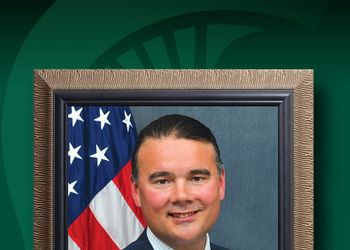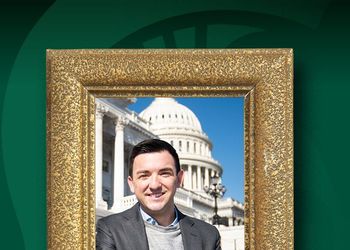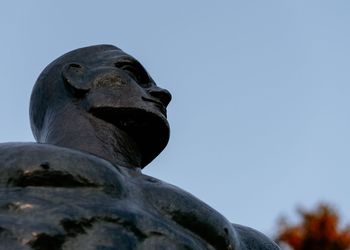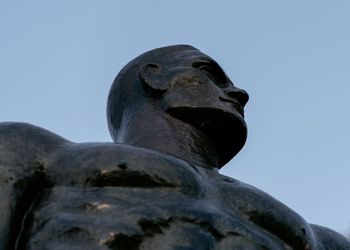In Service to Indigenous Communities: Bryan Newland '03, J.D. ’07
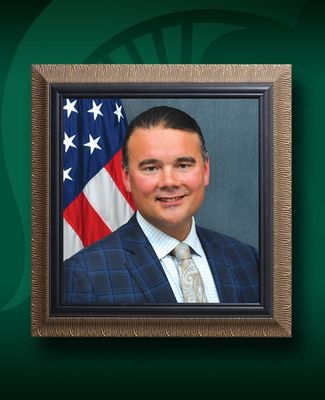
In Service to Indigenous Communities: Bryan Newland '03, J.D. ’07
June 1, 2022Growing up as a member of the Bay Mills Indian Community, a small tribe located in Michigan’s
Upper Peninsula, Bryan Newland saw his mother fill tribal leadership positions with a resolute, community-minded ethos.
“Trite as it may sound, it was instilled in my entire family that we all had a role to play in making the world a better place,” Newland said.
As his mother did, Newland lived that message through public service for the Bay Mills Community. He served as the tribe’s chief judge from 2014 to 2017 before moving into the role of tribal president from 2017 until he moved to Washington, D.C., and joined the U.S. Department of the Interior’s Bureau of Indian Affairs.
Today, Newland is working to enhance the quality of life in tribal communities on a national scale as the bureau’s assistant secretary. He helps to manage the federal government’s relationships with 574 federally recognized tribes spread from the northern slopes of Alaska to the southern tip of Florida, and is specifically tasked to oversee programs designed to boost education, social services, economic development and other elements of tribal life.
“We’re trying to turn the relationship between the U.S. and tribes into a positive and collaborative partnership, which it hasn’t always been,” Newland said.
On any given day, Newland might move from discussions about a $100 million gaming development to improving a school facility on tribal land to issuing grants to fund Indian-owned small businesses.
“My day is never boring because of the diverse work we handle,” he said.
Newland is also playing a leading role in the Federal Indian Boarding School Initiative unveiled last June by Interior Secretary Deb Haaland. The initiative aims to provide an honest, comprehensive review of the troubled legacy of federal boarding school policies, which forcibly pulled thousands of Indigenous children from their communities and relocated them to distant residential facilities throughout the late 1800s and into the 20th century.
To quell the nation’s so-called “Indian problem” and force assimilation, these facilities stripped Indigenous children of their identities, languages and beliefs, which disrupted families, created enduring scars and negatively impacted the sustainability of tribal life.
“The first part of the healing process is an honest accounting of the truth,” Newland said of the Boarding School Initiative. “It’s an important part of resetting the relationship between the federal government and Indian communities and building a better, more collaborative future together.”





